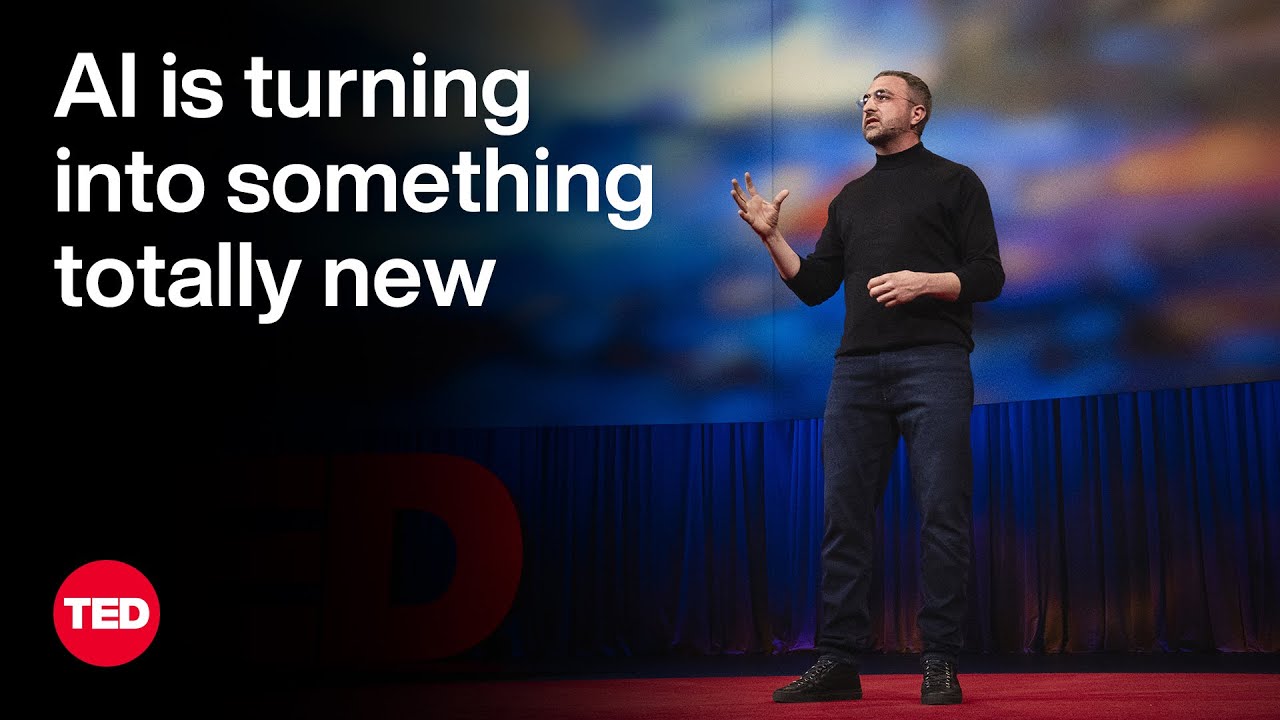Mustafa Suleyman discusses the evolution of artificial intelligence (AI) from a fringe concept to a transformative force with the potential to revolutionize various sectors. He emphasizes the need for ethical considerations, safety measures, and human values in the development of AI to ensure its responsible integration into society and shape a better future for humanity.
Mustafa Suleyman discusses the evolution and impact of artificial intelligence (AI) over the last few decades. Initially considered fringe, AI has rapidly advanced and is now capable of performing complex tasks once thought impossible for machines. As AI becomes more integrated into society, questions about its implications on various aspects of life have emerged. Mustafa reflects on a fundamental question posed by his nephew - “What is AI?” - and the need to clearly define and understand the nature of AI as it evolves.
He introduces the idea of AI as a new digital species, likening it to a companion that will play a significant role in human lives. Mustafa emphasizes the transformative potential of AI, envisioning a future where AI-driven technologies enhance productivity, provide personalized services, and assist in various tasks at both individual and organizational levels. He highlights the exponential growth of AI capabilities and the shift towards ubiquitous AIs that will interact with humans in sophisticated ways.
The metaphor of AI as a digital species prompts a discussion on the ethical considerations and potential risks associated with AI development. Mustafa urges for a focus on safety, human agency, and the responsible creation of AI technologies to ensure they serve humanity’s best interests. He acknowledges the need to address challenges such as autonomy and recursive self-improvement in AI systems to mitigate potential dangers.
Despite acknowledging the risks, Mustafa advocates for embracing the benefits of AI technology, emphasizing its potential to revolutionize various sectors, including healthcare, education, and climate solutions. He encourages a proactive approach to shaping the future of AI by prioritizing ethical considerations and human values in its development. Mustafa concludes by underscoring the importance of infusing AI with positive human traits like empathy, kindness, curiosity, and creativity, presenting an optimistic view of AI’s role in shaping a better future for humanity.
During the Q&A session, Mustafa addresses concerns about the rapid advancement of AI and the potential for unintended consequences. He emphasizes the importance of cautious design choices to prevent harmful scenarios, such as the emergence of self-replicating or uncontrollable AI systems. Mustafa clarifies misconceptions about the so-called “intelligence explosion” and stresses the need for deliberate safety measures and ethical considerations in AI development to ensure a positive and controlled evolution of this new digital species.
